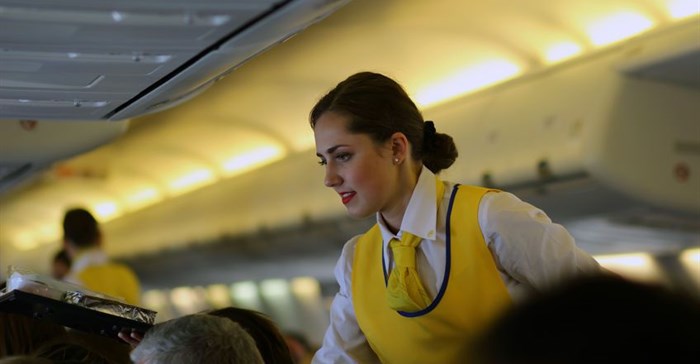Social media is unique in the history of communication, in that it potentially allows equal exposure to everyone - from David Icke, who believes that an alien-lizard Illuminati runs the world, to web pages devoted to the political philosophies of the "KarJenners" (I had to look that one up).

©Vitalli Shcherbyna via
123RF.
It’s all very egalitarian, but in the maelstrom of content, the eloquent and relevant must compete with the asinine and inconsequential. You will, probably sooner than later, find something that induces a tongue-click, a cocked eyebrow or possibly roll your eyes so hard that you can see your cervicomedullary junction – where the top of your spine meets your brainstem.
Example: Two "radio personalities" recently mocked a politician for describing reading, writing and arithmetic as the three R’s. Arithmetic doesn’t start with an “r”, they brayed. True, but the phrase has been in common use since around 1795. The court of Twitter ruled them worthy of derision.
Another recent example – for me, anyway – was the "twittizen" who described flight attendants as “gaatjies of the skies.” Gaatjies (literally, young guards) are essentially ticket-conductors on Cape Town’s minibus-taxis, and a quintessential, if raucous part of the city’s soundtrack. Seven seconds on Main Road between Cape Town, Mowbray, Claremont and Wynberg, you’ll have heard them hailing commuters.
Knowing the difference
But while gaatjies have their own skillset, lumping them and flight attendants together is simply inaccurate. The latter may guide you to your seat and has been taught to pass you your drink without spilling it – they’ve even been trained to deal politely with the passenger who ignores requests on the PA system and keeps his headphones and cellphone on and his tray-table down until instructed otherwise, in person and with direct eye contact by someone in uniform.
Doing so, grudgingly and with an air of huffy martyrdom, apparently signifies rugged individualism and sticking it to the man, like surreptitiously untucking your shirt at school. It’s mad, bad and dangerous to know, brought to you by Dwayne from accounts receivable in seat 13C (NB: Gluten allergy).
But around 90% of flight attendants’ training deals with saving lives rather than asking "chicken or beef?" or dealing with Dwayne from accounts receivable channelling his inner Lord Byron. They can deliver babies and perform CPR and advanced First Aid. Importantly, they’re trained to stay calm even while passengers succumb to bowel-voiding panic. Their job may include dealing with passengers whose loved one or colleague has a fatal heart-attack while seated next to them.
So droll, dismissive terms like “trolley-dolly” or “koffie-moffie” are not only insulting but inaccurate. When you board an aircraft you place your life as much in the hands of the cabin-crew as in the hands of the unseen professionals at the plane’s pointy end. In an emergency, the cabin-crew will see you to safety ahead of themselves. The rigour of civil aviation regulations means that emergencies are rare. Travellers may take hundreds of flights and experience nothing more exciting than a bit of turbulence and Dwayne from accounts receivable sighing about having to raise his window’s blind for the landing.
Perhaps we think that someone is a jobsworth or a petty gauleiter because they insist on such procedures, but the aircrew’s training for emergencies is repeated until it’s part of their muscle-memory that runs in the background. Any airline passenger should be glad about that, rather than begrudging such attention to detail.
Dealing with a crisis
While we’re discussing professions whose core skill is directly disproportionate to its workload, consider us humble public relations folk. Many are, like me, former journalists and spend a fair chunk of our days turning coffee into copy or creating content in some form. We also devote a portion of our time to consuming media and communicating with those who create that content, but for many of us, 90% of our training or preparation comprises 10% of our work: crisis management.
It’s what happens when there’s a reputational threat that could influence a share-price. It happens when a journalist is being encouraged by a news editor – or by the need to feed the news cycle – to get a comment and perhaps doesn’t understand fully how the right of reply works. It’s what happens when a social media user with a grudge against your client, or possibly against the known universe, sets off the hair-trigger lynch-mob hivemind that comprises online debate. Sometimes the risk is real, sometimes it’s just a passing beef. Sometimes it’s simply a symptom of an era when sober analysis and “let’s wait until we have all the facts” yields to "This is everything" or "I’ll just leave this here" or "x and y are on the same Whatsapp group."
Thankfully, working with media is mostly about a professional doing a good, fair job under some pressure and about us trying to do the same. Crises and reputation threats occupy a small portion of your time, but it forms the essence of your skills. It’s why real-time simulations and refreshers are important, similar in some ways to those undertaken by aircrews.
I doubt I’d have the street-smarts to be a gaatjie, nor the cool composure of the flight attendants managing Dwayne from accounts receivable with such infinite courtesy, while immaculately dressed and groomed, but I can draw lessons from them when not being chicken about dealing with a beef.




































